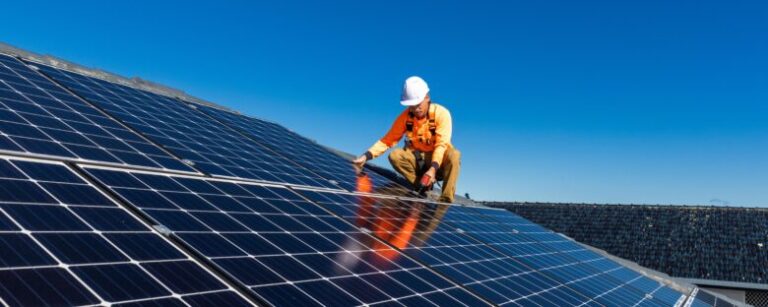According to survey data from the Annenberg Public Policy Center (APPC), most Americans report having personally experienced the effects of extreme weather in the past year.
The report found that two-thirds of US adults say that in the past year, their typical daily activities were affected either “sometimes, often, or frequently” by extreme outdoor heat, and half say that their typical daily activities were affected sometimes, often, or frequently by poor air quality resulting from wildfire smoke.
The APPC asserts that “an analysis finds a connection between these reported experiences and policy support”, adding that exposure to extreme weather is associated with support for a half-dozen policies intended to mitigate the effects of climate change.
Annenberg opens new Climate Communication division
The findings were released at an opening session of the Society of Environmental Journalists’ (SEJ) 33rd annual conference, which was held at the University of Pennsylvania. Penn’s Annenberg Public Policy Center (APPC) hosted the group in celebration of the Penn Center for Science, Sustainability, and the Media. APPC director Kathleen Hall Jamieson released the findings at the SEJ conference.
“We’ve traditionally assumed that experiencing a threat will affect policy preferences,” Jamieson said. “In this polarized time, on this polarized topic, that assumption holds true. People who report exposure to extreme weather are more supportive of measures to help address climate change.”
Jamieson also announced that APPC, now celebrating its 30th anniversary, is marking the occasion with the creation of a Climate Communication division, led by Annenberg School for Communication vice dean and professor Emily Falk, who heads a communication neuroscience lab at Penn. The new climate division joins APPC’s Communication Science and Institutions of Democracy divisions, which are headed, respectively, by Penn Integrates Knowledge Professor Dolores Albarracín and political science Professor Matt Levendusky. “This moves the policy center into an important new area in which communication plays a crucial role,” Jamieson said.
Experiencing extreme weather
APPC’s survey, the 17th wave of a nationally representative panel of 1,538 US adults, finds that millions of Americans report that extreme weather has affected their daily lives over the past year (note: subtotals may not add due to rounding):
- Temperature – Over four in 10 (45%) said temperatures in their local area were warmer than usual last summer;
- Heat – Two-thirds (68%) said extreme outdoor heat either sometimes (34%), often (19%) or frequently (16%) affected their typical daily activities;
- Smoke – Half (50%) said poor air quality resulting from wildfire smoke either sometimes (31%), often (12%) or frequently (7%) affected their typical daily activities;
- Flooding – 29% said flooding produced by unusual levels of rain either sometimes (20%), often (6%) or frequently (3%) affected their typical daily activities;
- Tornado/hurricane – 19% said a tornado or hurricane either sometimes (13%), often (4%) or frequently (1%), affected their typical daily activities.
The policy center has been tracking the American public’s knowledge, beliefs and behaviors regarding vaccination, Covid-19, flu, maternal health, climate change, and other consequential health issues through this survey panel for nearly three years. In addition to Jamieson and Patterson, the APPC team behind this survey includes Patrick E. Jamieson, director of the Annenberg Health and Risk Communication Institute, who developed the questions, and Ken Winneg, managing director of survey research, who supervised the fielding of the survey.
In related news, Petteri Taalas, director general of the Finnish Meteorological Institute and former Secretary-General of the WMO, recently wrote an opinion piece for Meteorological Technology International called “Extreme weather phenomena and climate change require preparedness and risk management”. Click here to read the full story.



